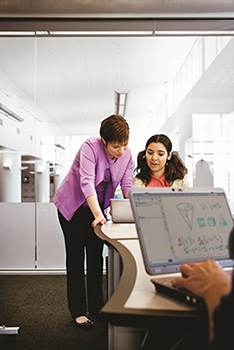 |
Dear Teacher, HP Classroom Manager helps technology meet the specific needs of the classroom. In addition to monitoring student activity on PCs, you can engage students and track their progress with smart, digital learning applications. Make interactive lesson plans, run game show–style Q & A sessions, and administer tests and instant-response surveys with auto-grading and score tracking. Monitoring individual student learning throughout the day is a snap! Learn more now. Todd E. Savelle PS: Be sure to scroll down for your FREE Common Core–aligned learning activities! |
Control Student Applications, Web Access, and External Devices
|
Create a Collaborative Environment
|
|
Click here if you want to stop receiving the free activities e-newsletter from our advertising partners. Did someone forward you this message? Opt in to receive The Mailbox emails and hear it first. |



